In this month’s e-news, journey with us through our #MembershipMonday recaps, a highlight of our CHroniCles project. With hundreds of collected narratives, photos, and documents, CHroniCles highlights the vibrant, diverse, and important story of each community health center to honor and preserve the living history of the CHC movement.
Waikiki Health Center (Honolulu, HI)
In 1967, community members concerned about the growing problem of drug use among Waikiki’s young people established the Waikiki Drug Clinic. In the 1970s, the clinic began offering expanded primary and preventive care, became a 501 (c)(3) non-profit agency, and changed its name to Waikiki Health Center. The drug clinic thus became the foundation for Waikiki Health (WH), which has been providing quality medical care and social services to vulnerable populations ever since.
In the following years, Waikiki Health Center began offering comprehensive care in Hawaii for HIV patients, as well as the state’s only 330(h) “Healthcare for the Homeless” Program (Care-A-Van). The health center also offers special services including Native Hawaiian healing, the Friendly Neighbors program for Waikiki’s oldest seniors, and Pu`uhonua, a community re-entry program for incarcerated men and women.
Today the health center is a multi-service, multi-site non-profit organization offering comprehensive primary care as well as dental and pharmacy. With outreach services throughout the State of Hawaii, the health center offers compassionate healing and expert care, where “you’re not just a patient or client, you’re a member of our family, our Ohana.”
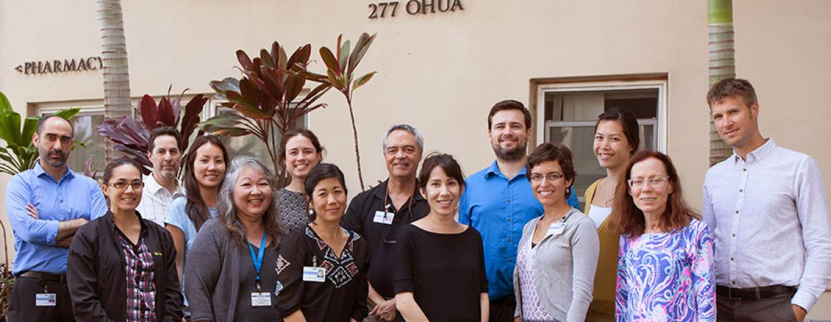
Waikiki Health Center staff, (Honolulu, HI)
CareSTL Health (St Louis, MO)
Then known as the St. Louis Comprehensive Neighborhood Health Center, CareSTL Health emerged in 1969 as a healthcare professional training facility in the primarily African-American community of North St. Louis City. Led by Morris Henderson, a prominent civil rights leader, committed to making sure everyone had access to health care.
In 1971, St. Louis Comprehensive Neighborhood Health Center graduated its first class of healthcare professionals and began delivering medical services to the community, operating out of three trailers. The center’s first permanent, full-service facility was built in 1972 and was expanded in 1974. A second facility was later added in 1993. In 2001, the center changed its name to Myrtle Hilliard Davis Comprehensive Health Centers in honor of the retiring CEO, who had served on the health center staff since its founding, and was appointed as the CEO following the death of Mr. Henderson.
In the following decade, the organization expanded to additional operating locations and today offers comprehensive and holistic medical, dental, behavioral health, specialty care, and school-based health program services. The health center rebranded in 2018 as CareSTL, as part of an initiative to reach new patients while continuing to support and serve the community.
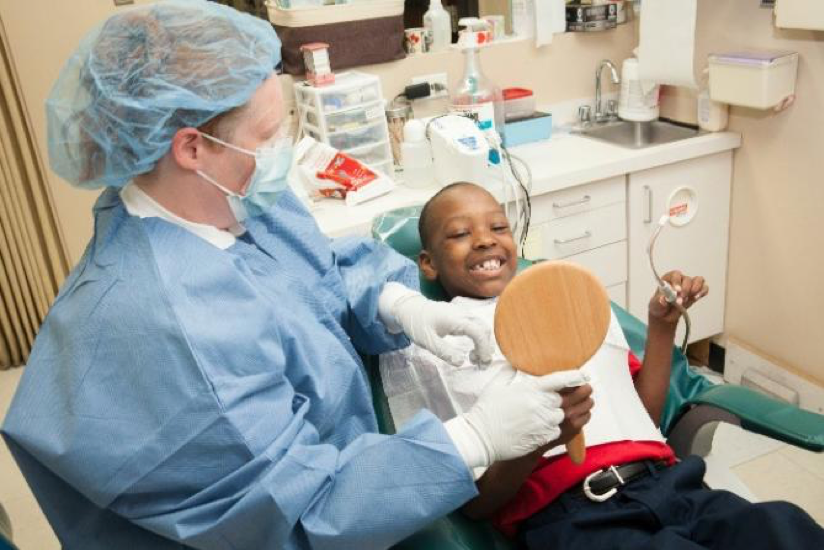
Pediatric dentistry services offered at CareSTL, (St Louis. MO)
Su Clinica (Harlingen, TX)
The seed for Su Clinica was planted in the late 1960s, when community advocates and church leaders came together to seek needed health care services for the uninsured and underserved in rural South Texas. After receiving a federal grant to provide healthcare services for migrant and seasonal farmworkers, as well as residents of Cameron and Willacy Counties, Su Clinica Familiar opened its first clinic sites in Harlingen and Raymondville in 1971.
Shortly after, the health center began offering maternity services and initiated an outreach program known as The Medical and Nutritional Outreach (MANO), offering mobile medical services to the area’s rural communities and colonias. Su Clinica also became one of the first placement sites for healthcare professionals serving with the National Health Service Corps. Throughout the following decades, the center expanded to offer dental services, WIC services, and built state-of-art clinical facilities to meet the community’s diverse needs.
Now known as Su Clinica, nearly 50 years since its founding the health center remains firmly committed to providing comprehensive, patient-centered, high quality care at locations in Brownsville, Harlingen, Raymondville, and Santa Rosa.
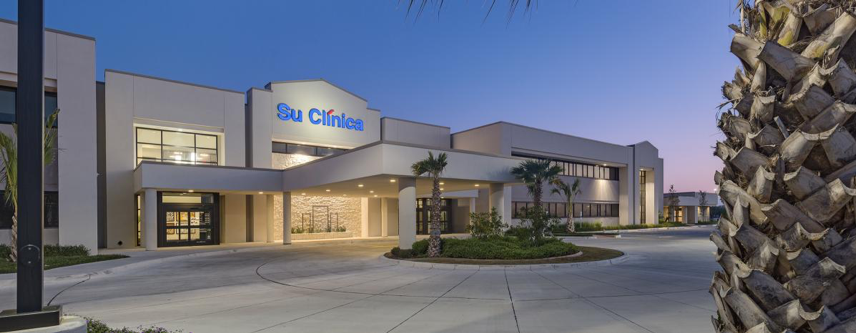
Su Clinica service site, (Harlingen, TX)
__________________________________________________________________________________________________________________________
Research Update: Community Health Centers Continue Steady Growth, But Challenges Loom
A new analysis examines the continued growth of America’s community health centers. The authors analyze health center activity for 2018 and comparative years based on data from the U.S. Department of Health and Human Services Uniform Data System (UDS) and document the near-tripling of health center capacity from 9.6 million patients served in 2000 to 28.4 million in 2018.
While this growth is attributed to several factors, key among them is the ACA Medicaid expansion. Significant differences persist between Medicaid expansion and non-expansion states: by 2018, the proportion of uninsured patients served by health centers in non-expansion states was nearly twice as high (35%) as in expansion states (18%). Meanwhile, 55% of patients served by expansion-state CHCs were covered by Medicaid in 2018, compared to 32% in non-expansion states. Despite the significant growth in both CHC capacity and scope, the authors caution that community health centers are vulnerable to major federal policy decisions that directly affect the health care safety net, including uncertainty regarding the future of the Community Health Center Fund, the administration’s “public charge” rule, changes to the Title X family planning program, and Medicaid work requirement programs.
The analysis marks report number 60 for the Geiger Gibson/RCHN Community Health Foundation Research Collaborative’s signature policy brief series. “Community Health Centers Continue Steady Growth, But Challenges Loom” can be accessed here.
__________________________________________________________________________________________________________________________
The CHroniCles Beat: Community Health Workers in the Community Health Center Setting
Community health workers (CHWs) are an integral part of the health care landscape. Whether strengthening ties through community outreach, providing clinical support as members of the primary care team, or serving one of many roles within or outside their organizations, CHWs are an invaluable bridge between communities and local health infrastructure. In this two-part series for the CHroniCles Beat, we spoke to colleagues from Mariposa Community Health Center, Nogales AZ;, St John’s Well Child and Family Center, Los Angeles CA;, and Northwest Regional Primary Care Association, Seattle WA, to learn more about the role of CHWs in the community health center landscape.
- Part 1, ‘Profiles – Community Health Workers in the Community Health Center Setting’
- Part 2, ‘Community Health Workers in the Community Health Center Setting’
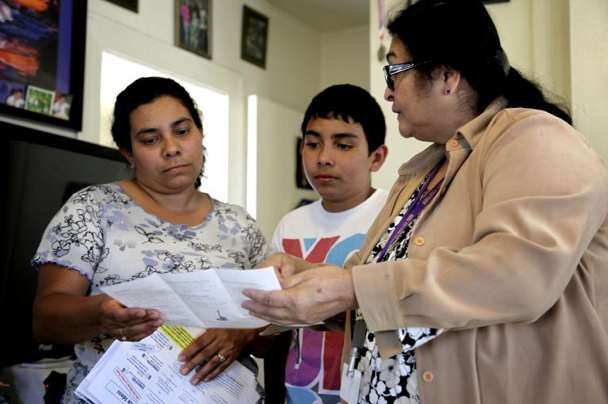
Silvia, a CHW for SJWCFC (right) conducting a home visit, (Los Angeles, CA)
__________________________________________________________________________________________________________________________
Enter To Win Our CHroniCles Raffle
Tell your community health center story and enter to win our December and January raffles! Every CHC and PCA is invited to create and update a customized profile with photos, data, narratives and videos.
More info can be found on our website at www.rchnfoundation.org/?p=8463
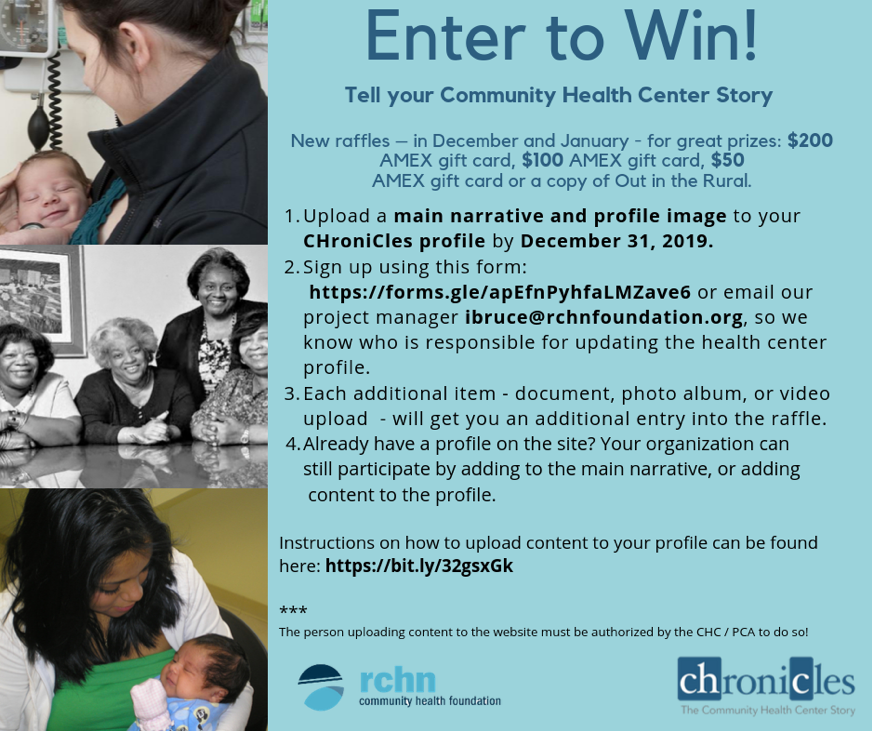
__________________________________________________________________________________________________________________________
Call for Nominations: 2020 Emerging Leader Awards
Do you have a remarkable young staff member at your PCA, HCCN or community or farmworker health center who you think deserves recognition? The nomination period is open for the 2020 Emerging Leader Awards, presented by the Geiger Gibson Program in Community Health Policy. Awardees will be recognized at the 2020 NACHC Policy & Issues Forum. The Emerging Leader Award highlights the accomplishments of exceptional staff 35 years of age or younger working in community health centers, primary care associations, and health center controlled networks. If you have a wonderful staff member deserving of recognition on a national stage, nominate your staff by January 6, 2020, at http://bit.ly/ggemergingleaders.
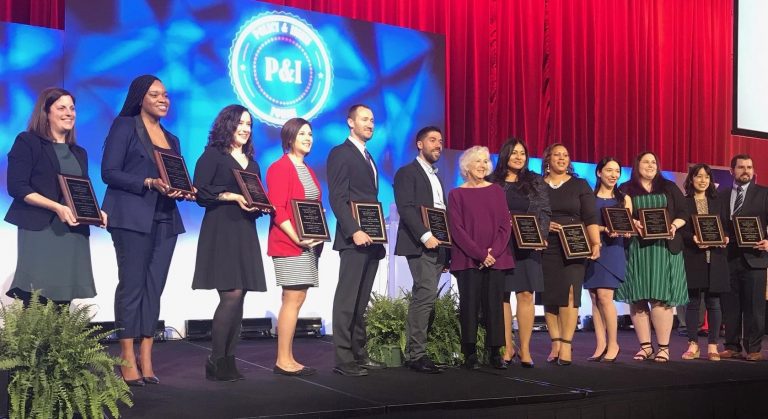
Emerging Leader Award recipients with Sara Rosenbaum at the 2019 NACHC Policy and Issues Forum (Washington, DC)



